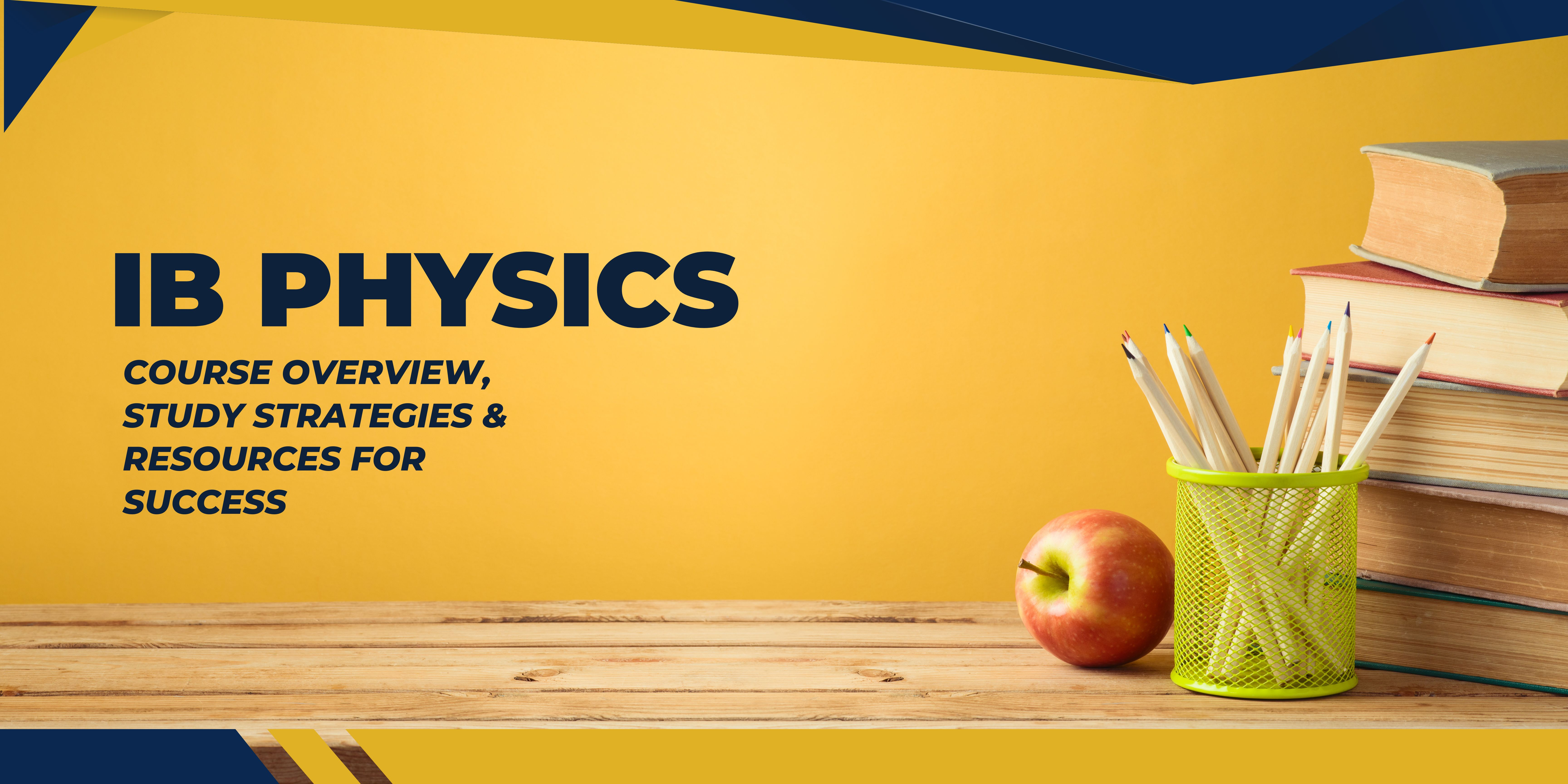Table Of Content
What is IB Physics?
Is IB Physics Difficult to Learn?
Course Overview
Study Strategies
1. Create a Study Schedule
2. Understand the Syllabus
3. Take Comprehensive Notes
4. Practice Past Papers
5. Collaborate with Peers
Resources for Success
1. Textbooks
2. Online Platforms
3. IB Physics Teachers and Classmates
Conclusion
What is IB Physics?
IB Physics is an engaging and comprehensive course offered by the International Baccalaureate program that explores the fundamental principles of the physical world. In IB Physics, students delve into topics such as mechanics, waves, energy, electricity, magnetism, and atomic and nuclear physics. They learn to apply these concepts through practical experiments, data analysis, and problem-solving tasks. This hands-on approach not only deepens their understanding but also nurtures their scientific thinking and inquiry skills. IB Physics fosters critical and analytical thinking, equipping students with valuable skills applicable to various fields and future endeavors.
Is IB Physics Difficult to Learn?
IB Physics can be challenging, but with proper preparation and a proactive approach to learning, students can succeed in the course. The difficulty level of IB Physics arises from its emphasis on deep conceptual understanding, critical thinking, and practical application of knowledge. Students are required to tackle complex problems, analyze data, and conduct experiments to gain a comprehensive understanding of the subject.
When comparing the difficulty of IB Physics and CBSE Physics, it is important to consider some key differences. While CBSE Physics may involve a greater volume of content, IB Physics presents a different set of challenges, emphasizing a thorough understanding of fewer concepts and demanding higher-level thinking skills for exam success.
CBSE Physics is essentially an extension of the subject taught up until grade 10, requiring students to put in the work and memorize concepts to succeed. While IB Physics takes a different approach. The breadth of material covered may be less than that of CBSE Physics, the challenge lies in the examinations. IB Physics exams are known for their rigorous nature, requiring students to demonstrate a deep understanding of concepts, apply critical thinking skills, and analyze complex problems.
Course Overview
The IB Physics course is a rigorous program that explores the fundamental principles and theories governing the physical world. It is designed to develop your scientific inquiry, critical thinking, and problem-solving skills. The course is divided into several core topics, including:
- Measurements and Uncertainties
- Mechanics
- Thermal Physics
- Waves
- Electricity and Magnetism
- Circular Motion and Gravitation
- Atomic, Nuclear, and Particle Physics
- Energy Production
Each topic is carefully structured to build upon the previous ones, providing a cohesive understanding of the subject matter. Through practical experiments, theoretical analysis, and real-world applications, IB Physics encourages students to explore the intricate workings of the universe.
Study Strategies
To excel in IB Physics, it is essential to adopt effective study strategies that optimize your learning experience. Here are some valuable tips to help you succeed:
1. Create a Study Schedule
Establishing a study schedule is crucial for organizing your time and ensuring consistent progress. Allocate dedicated time slots for reviewing class notes, practicing problem-solving, and revisiting challenging concepts. By following a structured study plan, you can maintain a steady pace of learning and avoid last-minute cramming.
2. Understand the Syllabus
Thoroughly review the IB Physics syllabus to gain a clear understanding of the content and assessment criteria. Familiarize yourself with the key concepts, learning outcomes, and assessment components. This knowledge will guide your study efforts and help you prioritize topics based on their weightage in exams.
3. Take Comprehensive Notes
During lectures and while studying from textbooks, make it a habit to take comprehensive notes. Summarize key points, equations, and examples in a concise and organized manner. Condensing complex information into bite-sized notes will facilitate better understanding and serve as a valuable resource for revision.
4. Practice Past Papers
One of the most effective ways to prepare for IB Physics exams is to practice past papers. Familiarize yourself with the exam format, question types, and time constraints. Solve a variety of problems to enhance your problem-solving skills and develop a systematic approach to answering questions.
5. Collaborate with Peers
Engaging in group study sessions or forming study groups with your peers can be immensely beneficial. Explaining concepts to others not only reinforces your own understanding but also exposes you to different perspectives and alternative problem-solving techniques. Collaborative learning can enhance your overall grasp of IB Physics.
Resources for Success
To supplement your learning journey in IB Physics, here are some highly recommended resources:
1. Textbooks
“Physics for the IB Diploma” by K.A. Tsokos
“IB Physics Study Guide: 2014 Edition” by Tim Kirk
These comprehensive textbooks cover the entire IB Physics syllabus and provide detailed explanations, worked examples, and practice questions. They are widely recognized as valuable resources for IB students.
2. Online Platforms
Khan Academy (www.khanacademy.org)
Chris Doner Physics (www.youtube.com/user/DonerPhysics)
IB Teach (https://www.ibteach.com)
These online platforms offer a wealth of video tutorials, interactive lessons, and practice exercises specifically tailored to IB Physics. They provide an opportunity for self-paced learning and can clarify challenging concepts.
3. IB Physics Teachers and Classmates
Leverage the expertise of your IB Physics teachers and collaborate with your classmates. Seek guidance from your teachers when you encounter difficulties and actively participate in class discussions. Peer interaction and guidance can provide valuable insights and support throughout your IB Physics journey.
While obtaining a 7 in IB Physics may appear challenging, making a few adjustments to your study approach can set you on the path to success. By making the necessary adjustments to your study habits, such as active engagement in class, seeking clarification when needed, and utilizing additional resources, you can deepen your understanding of the subject. The journey to a 7 in IB Physics may not be easy, but with the right mindset, perseverance, and a willingness to put in the effort, you can overcome the challenges and increase your chances of achieving that sought-after top score.
Conclusion
In conclusion, mastering IB Physics requires a combination of diligent study, effective strategies, and access to valuable resources. By following the study strategies outlined in this guide and utilizing the recommended resources, you can enhance your understanding, excel in exams, and achieve success in the IB Physics course.
Remember, success in IB Physics is not solely determined by your natural abilities, but also by your dedication, perseverance, and the quality of your study approach. Embrace the challenges, stay motivated, and make the most of the incredible learning opportunities offered by the IB Physics program.





